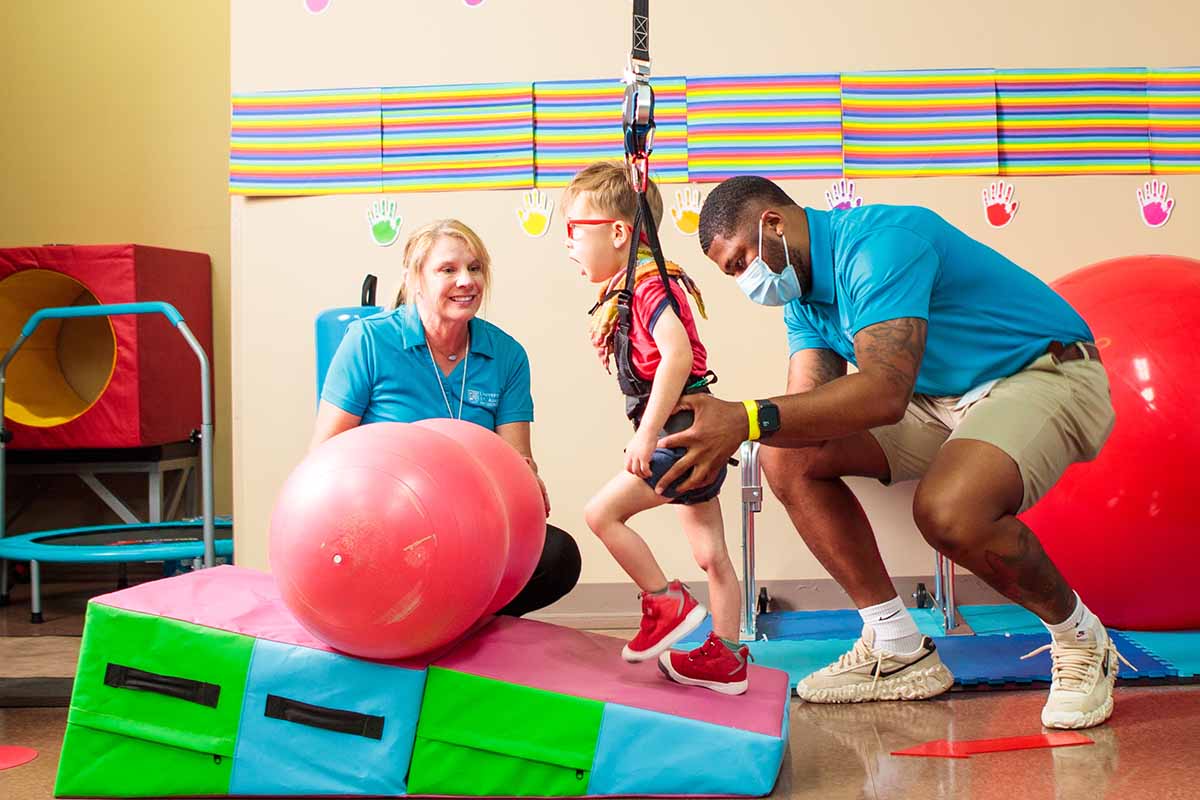
The COVID-19 pandemic wreaked havoc on the business models of healthcare organizations, as health systems shut down all but emergency services, set up separate triage centers and moved many services to telehealth. What can we learn from this crisis? One key insight is that healthcare organizations are looking to hire healthcare administrators who will be charged with managing change in healthcare for the long term, while keeping the organization flexible and resilient enough to weather future challenges. Robert Havasy, “The Impact of COVID-19 on Healthcare Business and IT,” The Healthcare Information and Management Systems Society (HIMSS), Nov. 3, 2020 A recent white paper published by the University of St. Augustine for Health Sciences offers five resilience skills health professionals like you can learn to prioritize how you can advance your career in today’s market.
Resilience Skill 1: Understand the Revenue Cycle
Managing change in healthcare and developing resilience skills is sometimes necessitated by a crisis. “COVID rocked our world,” says Chris Johnson, FHFMA (Fellow of the Healthcare Financial Management Association), VP of Revenue Cycle Management–Regional Facilities at Atrium Health, a large health system in North Carolina. “Like most other healthcare organizations, we had to shift our focus away from traditional services to care for patients affected by COVID. This shift had a substantial negative impact on our revenue.”
In a previously unthinkable move, Atrium’s 70-person revenue cycle call center team was informed by healthcare administrators that they would start working remotely within just days. The logistics and cash flow required for such a fast and furious move was staggering. Atrium’s revenue cycle team members weathered complex and related challenges, and learned they could still be productive while working remotely.
How can you build this resilience skill?
Managing change in healthcare requires healthcare administrators to have a deep understanding and skill set in revenue cycle management. The Healthcare Financial Management Association (HFMA) offers a Certified Revenue Cycle Representative (CRCR) certification to improve and document your skills. While you can take the certification exam directly through HFMA, the certification is also offered within a Master of Health Administration (MHA) course.
Resilience Skill 2: Develop Health Informatics Expertise
Sometimes, managing change in healthcare requires healthcare administrators to employ existing tools in new or much more extensive ways. The pandemic accelerated changes in the field of health informatics, most notably in telehealth. Telehealth use initially increased 78 times from the pre-COVID-19 baseline. Today, that usage has plateaued at around 38 times the pre-COVID baseline—a clear sign that regular telehealth usage is here to stay. Sources: The USAHS white paper “5 RESILIENCE SKILLS FOR KEEPING YOUR ORGANIZATION AGILE IN TIMES OF CHANGE” and it’s attribution to: Oleg Bestennyy et al., “Telehealth: A quarter-trillion-dollar post-COVID-19 reality?” McKinsey & Co., July 9, 2021.
One key factor in offering patients an effective telehealth experience is physicians having all the necessary patient information at their fingertips. Parnaz Rafatjou, DHA, MHA, MBA, the VP of Operations and Client Experience–Telemedicine for Sound Physicians in Tacoma, Washington, says, “It’s important to optimize telehealth workflows so that providers can collect the right information and use the integrated data flow for seamless patient handoff.” Employing new and more efficient health informatics strategies is critical to providing healthcare of the future.
How can you build this resilience skill?
Health administrators use informatics to translate data into intelligence to make decisions affecting business operations and patient care. Understanding healthcare business intelligence can help you oversee strategic technology investments and help bridge the gap between the IT, clinical, and business aspects of your healthcare organization. Our MHA program offers intensive health informatics studies through a business intelligence or related specialization.
Resilience Skill 3: Know What Motivates Your Team
Keeping team members engaged is a huge challenge for healthcare administrators as they manage healthcare of the future. The pandemic reshaped workplace dynamics, with employees laid off, furloughed, or sent home to work remotely. Christine Sibley, MBA, EJD, CPA, CMA, FHFMA, who teaches a course in organizational behavior in the MHA program at the University of St. Augustine for Health Sciences (USAHS) says, “I think we’ll see the pandemic’s real impact on workplace culture more clearly in the coming years.”
At Atrium Health in Charlotte, North Carolina, where Sibley is AVP of Reimbursement, managers created innovative ways to keep employees engaged. Since team members had lost their familiar social rituals, like talking around the water cooler, they instituted virtual coffee breaks and optional happy hours with family members and pets invited. Healthcare administrators need to develop skills and strategies to keep remote or hybrid teams socially connected.
How can you build this resilience skill?
Courses like Sibley’s employ role-playing scenarios to brainstorm solutions. Our MHA program offers a strong focus in areas in interprofessional education, which teaches future healthcare administrators how to foster effective professional and social communication to keep care team members engaged and motivated.
Resilience Skill 4: Demonstrate Cultural Competence
Effectively managing healthcare of the future will require healthcare administrators to possess cultural competence, a quality critical to delivering healthcare in increasingly diverse settings. “Our nation’s health disparities increasingly fall along economic and racial lines,” says Kysha Harriell, PhD, LAT, ATC, who co-teaches the Cultural Competence in Healthcare course within the MHA program at the University of St. Augustine for Health Sciences. The pandemic further exposed these existing health disparities, disproportionately impacting communities of color. Pacific Islander, Latino, Indigenous, and Black Americans all have a COVID-19 death rate of double or more that of White and Asian Americans, due in part to disparities in access, affordability, and other areas.
From top administrators to the front lines of healthcare delivery, care team members need to possess the tools to respond, with the goal of providing respectful and competent care for all patients. Healthcare administrators play a pivotal role in removing the biases in policies and procedures, while instituting new policies that promote equality.
How can you build this resilience skill?
You can develop cultural competence through diversity training on the job and through courses like Dr. Harriell’s. Many MHA programs offer in-depth training in cultural competence and other strategies to promote effective interaction, intercultural communication, and the respectful delivery of care by interprofessional teams.
Resilience Skill 5: Lead Interprofessional Teams
Healthcare administrators charged with managing healthcare of the future will need to develop multiple skill sets in communicating with a variety of stakeholders, including interprofessional care teams. A siloed approach to patient care, where each practitioner treats in isolation, can lead to communication failure during patient handoffs—a leading cause of serious medical error. In contrast, a comprehensive care team approach correlates with higher patient satisfaction and better health outcomes, which makes an organization stronger and more resilient.
Thomas Tarantola, MHA, is a Clinical Systems Support Analyst for Baptist Health in Jacksonville, Florida. He says that the interprofessional courses in his MHA program gave him a new perspective on teamwork. “We practiced finding compromises and learning how to work together toward the same end goal. When I walk into a situation, I need to adapt my ideals to the ideals of the team. Being adaptable is so important—and you learn this through experience.”
How can you build this resilience skill?
You can learn interprofessional team-building competencies within an MHA program that offers interprofessional courses. A strong focus on interprofessional education will allow you to build the leadership, project management, and communication skills you need to guide interprofessional teams.
How to Build These Five Resilience Skills
Read the full white paper here.
These five core competencies—understanding the revenue cycle, health informatics, care team motivation, cultural competence, and interprofessional teamwork—are all connected. They are all necessary competencies for future healthcare administrators who will be responsible for managing change in healthcare.
Learning all five resilience skills is a core foundational focus of the University of St. Augustine for Health Sciences’ MHA program. By , you’ll be prepared to become a successful healthcare administrator who will possess the skills, knowledge, and insights to lead a healthcare organization into the next iteration of healthcare.
The USAHS MHA program also offers you:
- A certification program to earn your Certified Revenue Cycle Representative (CRCR) certification (resilience skill 1)
- A business intelligence MHA concentration option with a certification program to earn your Certified Specialist in Business Intelligence (CSBI) certification (resilience skill 2)
- A strong interprofessional education focus as well as an interprofessional education MHA concentration option (resilience skills 3 and 5)
- Extensive cultural competence training and education (resilience skill 4)
Ready to Take the Next Step Toward Your MHA?
Learn more about our USAHS MHA degree, including our interprofessional education focus, MHA specializations in Executive Leadership, Business Intelligence, and Interprofessional Education and our graduate certificates.








